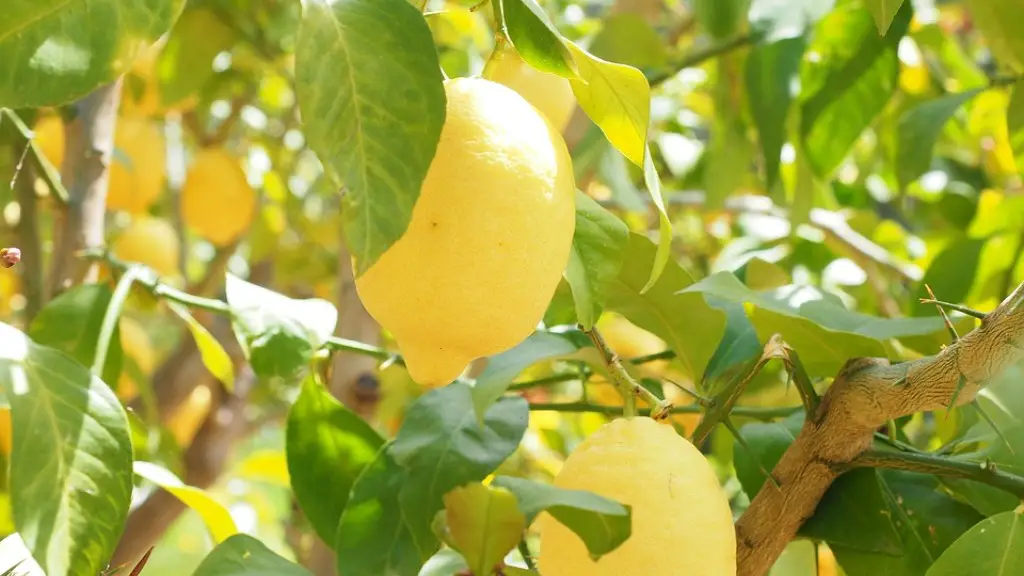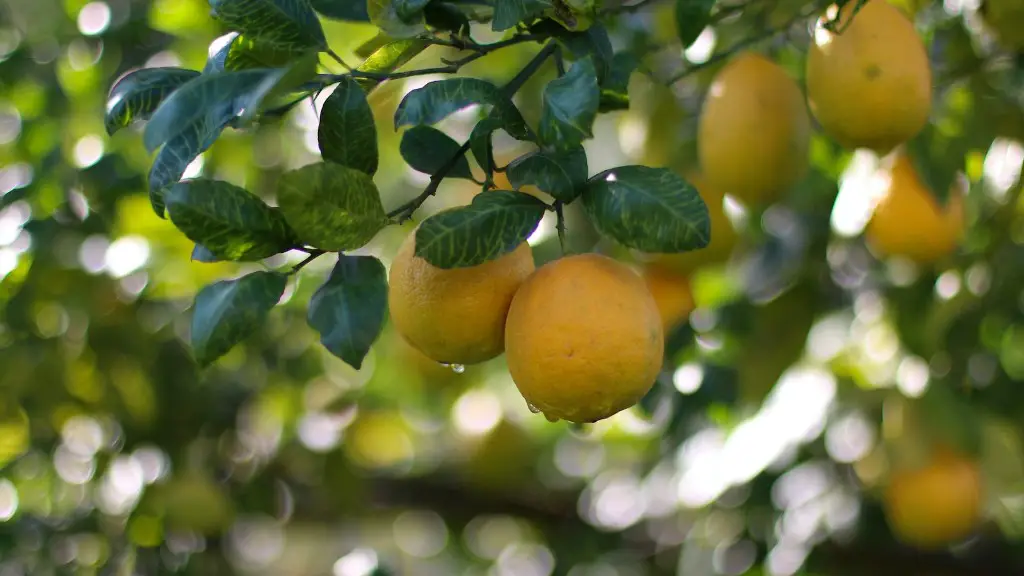Caring for potted lemon trees requires both pruning and fertilizing to keep them healthy and productive. To fertilize a potted lemon tree, start by choosing the right fertilizer for your climate and soil type, then apply it according to the directions on the fertilizer packaging. Make sure you fertilize at the optimal times and in the right amounts for your lemon tree’s health. Here’s a closer look at how to fertilize potted lemon trees.
Select the Right Fertilizer
The success of your potted lemon tree depends on the fertilizer you use. Select one designed specifically for citrus species and opt for organic fertilizers whenever possible. When choosing organic fertilizer, buy organic compost and manure, as well as other nutrient sources, such as fish emulsion, manure tea, blood meal, bone meal or neem oil. Don’t forget to check the fertilizer’s acidity, as lemon trees prefer a slightly acidic pH.
Apply Fertilizer Properly
Potted lemon trees require regular fertilizing – every one to two weeks in spring and summer and every four to six weeks during other seasons. When you fertilize, use half the recommended rate for a mature tree. Skip fertilizing when temperatures are extremes and be sure to stop fertilizing potted lemon trees during the winter. You can fertilize during active growth or when the tree begins to bloom, as well as after harvest.
Choose a Balanced Fertilizer
When selecting fertilizer for potted lemon trees, pick a balanced blend of nitrogen, phosphorus, and potassium. Nitrogen helps promote a healthy canopy, phosphorus helps promote root development and potassium helps promote citrus fruits. Aim for a fertilizer with a 3-1-2 ratio. Never apply fertilizer directly to the trunk, as this can cause damage, but instead apply it two to three inches from the trunk.
Test the Soil pH First
Before you begin fertilizing a potted lemon tree, it’s important to test the soil pH. Lemon trees prefer a pH level in the 6.0 to 6.5 range, so use a simple soil test to measure the pH. Based on the results of your soil test, you may need to add lime to the soil. You can also used acidified fertilizers designed to encourage growth and nutrient uptake by acidic-loving plants.
Mulching Your Potted Lemon Trees
Encourage healthy root growth in your potted lemon tree by adding a layer of mulch before you apply the fertilizer. Mulch helps to retain soil moisture, reducing the need for frequent watering, as well as helping to reduce nutrient runoff. The best type of mulch for a potted lemon tree is a three-way mixture of compost, manure and straw, ensuring your potted lemon tree provides optimum yield for the entire growing season.
Compost Tea for Your Potted Lemon Trees
Compost tea is a great way to add beneficial microbes and nutrition to your potted lemon tree. To create compost tea, simply fill a noodle, sock or burlap bag with finished compost and soak in a 10-gallon bucket of water for two to three days. Once brewed, use the tea to water your potted lemon tree every 1-2 weeks. Compost tea boasts many advantages, including not only higher yields and healthier plants, but it also increases soil microbial life and helps prevent disease.
Fungicides for Your Potted Lemon Trees
In addition to fertilizing your potted lemon trees, you may need to use fungicides to control fungal diseases. To protect your potted lemon tree from disease, spray the foliage with a hormone-based fungicide every two to three weeks during the season. To be effective, follow the manufacturer’s guidelines and be sure to apply the fungicide late in the day, when less moisture is present in the air.
Foliar Sprays for Your Potted Lemon Trees
Foliar sprays are another helpful way to fertilize potted lemon trees. These sprays provide a balance of essential minerals, including iron, sulfur, calcium, and magnesium, as well as other micronutrients. Foliar sprays are especially beneficial when applied during water-stressed periods. Be sure to follow the instructions on the label, as the amount and frequency of application will depend on the size and age of your potted lemon tree.
Specialty Fertilizers for Your Potted Lemon Trees
If your potted lemon tree isn’t getting necessary nutrition from regular fertilizer applications, you may want to try specialty fertilizers, such as kelp-based fertilizers. Kelp-based fertilizers are natural organic supplements made from seaweed and are considered liquid fertilizers. These fertilizers are often fortified with extra nitrogen, helping to promote healthier and more productive potted lemon trees.
Manure Tea for Your Potted Lemon Trees
Manure tea is a tried and true method of fertilizing potted lemon trees and is an excellent source of nitrogen and other vital nutrients. To make manure tea, mix 10 parts well-rotted manure to one part water, then let the mixture steep overnight. Once steeped, strain the solution into a bucket and water your potted lemon tree with the mixture. Be sure to stop fertilizing your potted lemon tree a month before harvest.
Soil Amendments for Your Potted Lemon Trees
Along with regular fertilizing, soil amendments can help keep your potted lemon tree healthy. These amendments can include ground dolomite lime, oak bark, and rock minerals that bring vital nutrients to the soil. Additionally, soil amendments help to break up clay soils and help to improve drainage. Be sure to add soil amendments only when necessary, as too much can damage the nutrients present in the soil.
Watering Your Potted Lemon Tree
Along with fertilizing your potted lemon tree, you should also be watering it regularly. Lemon trees require two to three gallons of water per week, depending on the size of the tree. Water early in the morning and apply water slowly, allowing the soil to absorb it rather than run-off. It’s also important to keep the soil consistently moist by using either a soaker hose or drip irrigation. Lastly, remember to check the moisture level of the soil with a moisture meter to make sure the tree is receiving enough water.



